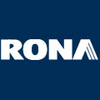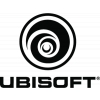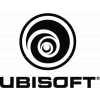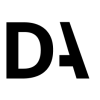Our Vancouver client is seeking a Senior Content Strategist to assist the in-house Marketing team with content strategies including content audit, writing. -
18 months contract, Part time - maximum of 10-20 hours a week, depending on project requirements, and will work remote on an as- and when-requested basis
Must Have :
- Content strategy and management : Minimum 7 years ’ recent experience in content strategy, content management, or a related field, with a proven track record of developing and executing successful content strategies.
- Project management : Experience managing complex projects, including audits, content migrations, and multi-channel content initiatives.
- Content structure and organization : Proficiency in information architecture, structured content, and taxonomy design
- Editorial standards and compliance : Knowledge of accessibility standards (e.g., WCAG) and best practices in SEO, brand voice, and style consistency.
- Technical familiarity : Working knowledge of content management systems (CMS), digital asset management (DAM) tools, and analytics platforms.
- Cross-functional collaboration : Proven experience working with marketing, product, UX, and design teams to align content with organizational goals.
- Analytical abilities : Strong skills in content auditing, performance analysis, and data-driven decision-making.
- Strategic thinking : Ability to develop and articulate content strategies that support business objectives and improve user experience.
- Degree in Communications, English, Marketing, or related field and / or post-secondary training in content strategy, user-centred design, or technical communication
Responsibilities :
1. Content audit and analysis
- Conduct comprehensive audits of existing content across platforms.
- Analyze content performance and user engagement metrics to identify gaps and opportunities.
- Review content for brand alignment, accessibility, SEO, and readability.
2. Content planning and strategy development
- Develop content strategies aligned with organizational goals, brand guidelines, and user needs.
- Identify target audiences and create audience personas to guide content creation.
- Establish content governance, including workflow, approval processes, and editorial standards.
3. Structured content and information architecture
- Design and implement a structured content approach to enable content reuse across multiple platforms.
- Organize information architecture to improve user experience and findability.
- Create content models that support scalability and consistency.
4. Content lifecycle management
- Implement processes for content creation, review, updating, and archiving to ensure relevance and accuracy.
- Define metrics for content effectiveness and manage content analytics to inform future strategies.
5. Stakeholder collaboration and education
- Collaborate with cross-functional teams (marketing, design, product) to align content with organizational goals.
- Educate teams on content best practices, SEO, and accessibility standards to help build internal content expertise.
6. Content accessibility and compliance
- Ensure all content meets accessibility standards (such as WCAG) and complies with legal and regulatory requirements.
- Recommend practices for making content more accessible across digital and print media.
7. Performance measurement and reporting
- Develop KPIs for content performance, engagement, conversion, and audience growth.
- Create regular performance reports and recommendations to optimize content strategies.
- Use data-driven insights to continuously improve content quality and relevance.
19 hours ago








